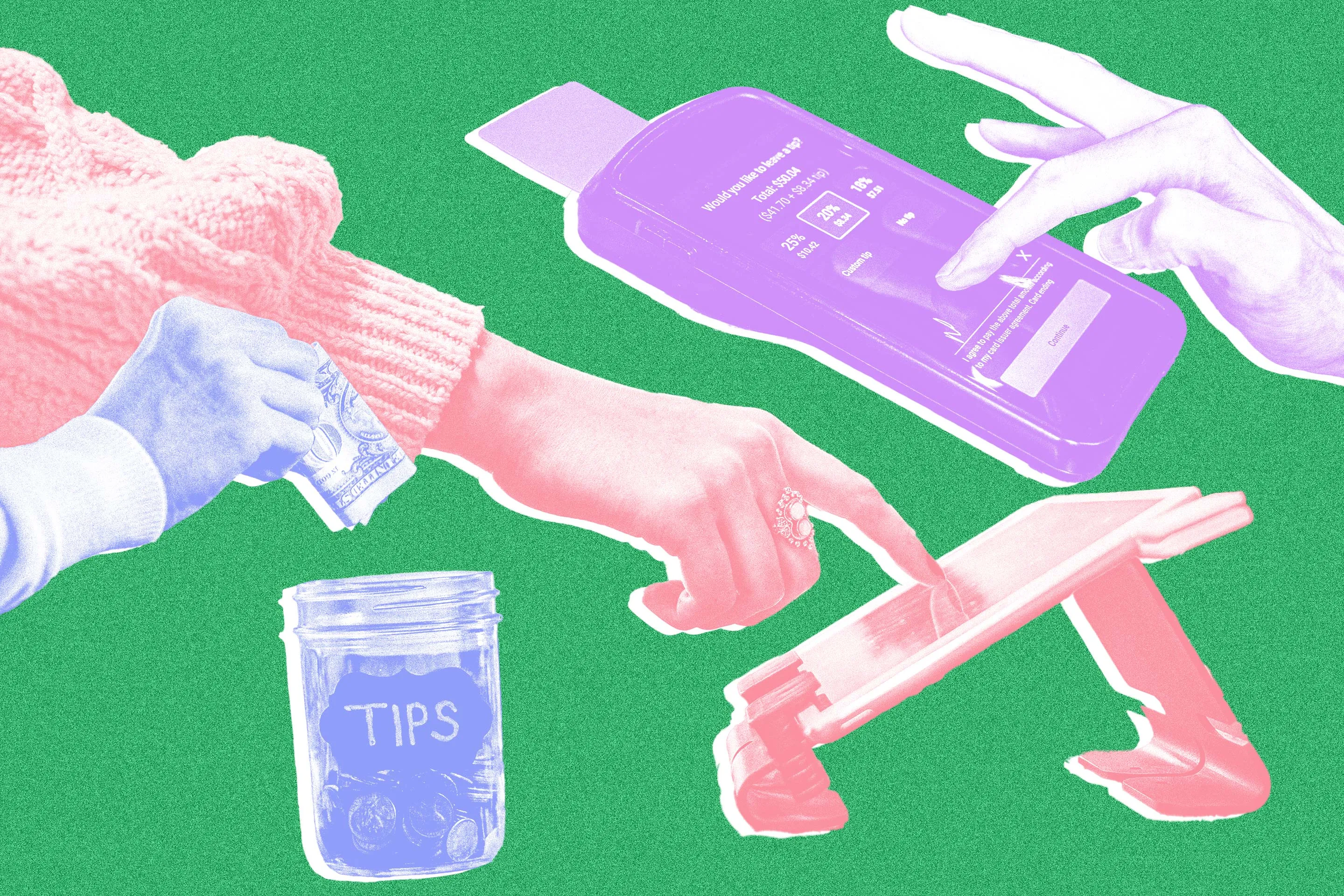Americans are already coping with elevated prices thanks to inflation. So often it feels particularly egregious when they’re asked to tip on top of that — sometimes 20% or more — at seemingly random places like the grocery store or fast-food counter.
The increased pressure to tip in evermore scenarios is leading some folks to draw the line. A new survey from Upgraded Points, a credit card rewards site, shines light on where, exactly, most Americans are comfortable skipping the tip.
“As tipping culture evolves and the cost of living continues to climb, it’s clear that Americans are feeling the strain,” Alex Miller, Upgraded Points’ CEO, wrote in the report.
In the survey, which was based on responses from over 3,300 Americans, 90% of people said tipping has gotten out of hand. More than half said that being prompted to tip by a screen outright angers them.
Where people hate tipping the most
The survey suggests that Americans tend to skip tipping at businesses that prioritize fast-paced service and minimal interaction with the workers. That means people are least likely to tip…
- At the car repair shop: 82% of respondents said they don’t tip on auto services. Perhaps more surprising is that the remaining 18% actually do tip on these services.
- At sporting events: 76% said they don’t leave tips at sporting-event concession stands.
- At fast-casual restaurants: A small majority, 53%, do not tip at so-called “fast casual” restaurants, like Chipotle or Panera Bread.
- On food pickup orders: When picking up their meal from a restaurant, 51% said they don’t tip.
On the other hand, Americans said they are most likely to tip for food delivery (93%), ride-sharing (88%) and grocery delivery services (86%).
Upgrade Points also analyzed how residents of different states tip. Different parts of the country have very different tipping habits. About 72% of residents in Vermont tip across the board, including at auto shops, fast-casual restaurants, coffee shops and more. Just over 70% do the same in Rhode Island.
In terms of tip skipping: Gratuity is least prevalent in California, with 56% of residents saying they tip. In Utah, 57% of residents frequently tip.
Why do Americans tip so much?
Tipping is ingrained in America’s economic DNA, and it became the norm after the U.S. Civil War when formerly enslaved Black people were integrated into the workforce. In many cases, employers paid them little-to-no wages, and Black workers largely relied on tips to make a living.
Fast forward nearly 160 years, and about 4 million employees still make most of their earnings through tips, according to the Department of Labor. However, that number is likely far larger due to the rise of tip-reliant gig workers, who are classified as independent contractors. At places like coffee shops, employees who receive a regular minimum wage may get tips on top, as well.
Then came the COVID-19 crisis. Myka Meier, etiquette expert and founder of Beaumont Etiquette, previously told Money that the pandemic ushered in a “new expectation of higher tipping and more frequent tipping.”
In the early days of the pandemic, tipping was a way to show genuine appreciation to the folks who often used apps like Uber, DoorDash and Amazon to zip around town and deliver food, groceries and packages while everyone else sheltered in place at home.
As businesses began to reopen, contactless and digital payment options quickly took over in the form of those sleek little screens and point-of-sale systems that line checkout counters all around the country. This made explicitly asking for tips automatic and far less awkward.
According to a Pew Research survey from last November, 72% of Americans said that tipping is expected in more places these days. The antiquated tip jar that used to quietly sit off to the side collecting leftover change from cash payments has become an automated, individualized prompt at the end of every order, beckoning customers to tip 18%, 20% or even 25% on their burrito before they’ve taken a bite.
More from Money
Dollar Scholar Asks: When Is It OK Not to Tip?
Here Are the 80 Best Financial Planners in the U.S.
Rich People Really Are Happier Than the Rest of Us: Study
